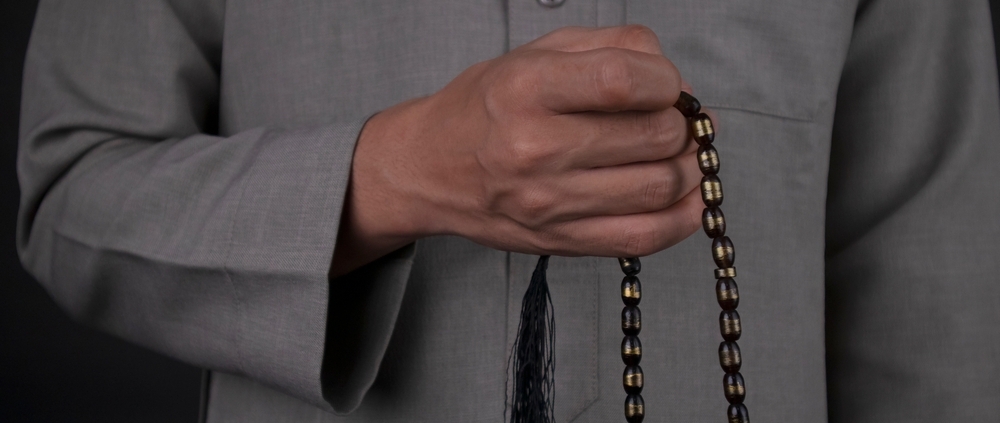Should We Make Dhikr or Pray Sunna Prayers after the Fard Prayers?
Shafi'i Fiqh
Answered by Shaykh Irshaad Sedick
Question
Should I make Dhikr after the Fard Prayers, or should I perform the connected Sunna prayers after performing the Fard prayers according to Shafi‘i Fiqh?
Answer
In the Name of Allah, the Most Merciful and Compassionate. May Allah guide us to that which pleases Him, Amin.
There is some flexibility in what to do after the obligatory prayers since the obligatory duties have been fulfilled. Evidence suggests that the practice of the Prophet (Allah bless him and give him peace) and the Companions (May Allah be pleased with them) first engaged in some dhikr (remembrance of God) after the obligatory prayers in the Mosque and then proceeded to pray the supererogatory prayers at their homes, and Allah knows best.
Dhikr After the Obligatory Prayers
‘Abd Allah Ibn Abbas (Allah be pleased with him) narrates that the completion of the Messenger of Allah’s (Allah bless him & give him peace) prayer would be known by the recitation of the Takbir [lit. saying, Allahu Akbar & traditionally interpreted as engaging in dhikr]. [Abu Dawud]
‘Abd Allah Ibn Abbas (Allah be pleased with him) narrates that raising the voice with dhikr was practised in the time of the Messenger of Allah (Allah bless him & give him peace) when they left the obligatory prayer. And Ibn ‘Abbas said: “I would know of when people left the obligatory prayer by the (loud) dhikr, and I used to hear it.” [Abu Dawud]
Based on the above and similar narrations, we conclude that it is an established Sunna practice to engage in dhikr after the obligatory prayers, and Allah knows best.
Imam Shafi’i says, “I prefer that the imam and follower invoke Allah (dhikr) after the Salams, and do so silently unless the imam wants to be learned from, in which case he says the invocations aloud until he believes that he has been learned from, after which he says them to himself.” [Shafi‘i, Kitab al-Umm]
The imam turns for post-prayer invocation and supplications so that his right side is towards the group and his left side towards the direction of prayer (qibla). He leaves his place as soon as he finishes if there are no women (he waits for them to leave first). It is recommended that the followers remain seated until the imam stands. In the Shafi‘i School, the invocations are recommended to precede the post-prayer sunna prayers. [Keller, ‘Umdat al-Salik]
Supererogatory Prayers
It is recommended for those who perform non-obligatory prayers after the prescribed prayer to first wait till after some conversation: it is also better to pray them elsewhere and perform them in one’s home. However, it is better to perform specific non-obligatory prayers in the mosque, such as those before the Friday prayer, those after circumambulating the Ka‘ba, and those before entering pilgrim sanctity (ihram) if there is a mosque at the site.
Others that are better in the mosque include:
- the midmorning non-obligatory prayer (duha);
- the guidance prayer (istikhara);
- the two rak’as that are sunna before departing on a journey and when arriving from one;
- prayers performed during a period of spiritual retreat in a mosque (i’tikaf);
- confirmed sunna prayers (sunna mu’akkada) that one is afraid of missing if one does not pray them in the mosque;
- and the sunna prayer before the sunset prayer. [Misri, ‘Umdat Al-Salik]
I pray this is of benefit.
[Shaykh] Irshaad Sedick
Checked and Approved by Shaykh Faraz Rabbani
Shaykh Irshaad Sedick was raised in South Africa in a traditional Muslim family. He graduated from Dar al-Ulum al-Arabiyyah al-Islamiyyah in Strand, Western Cape, under the guidance of the late world-renowned scholar, Shaykh Taha Karaan.
Shaykh Irshaad received Ijaza from many luminaries of the Islamic world, including Shaykh Taha Karaan, Mawlana Yusuf Karaan, and Mawlana Abdul Hafeez Makki, among others.
He is the author of the text “The Musnad of Ahmad ibn Hanbal: A Hujjah or not?” He has served as the Director of the Discover Islam Centre and Al Jeem Foundation. For the last five years till present, he has served as the Khatib of Masjid Ar-Rashideen, Mowbray, Cape Town.
Shaykh Irshaad has thirteen years of teaching experience at some of the leading Islamic institutes in Cape Town). He is currently building an Islamic online learning and media platform called ‘Isnad Academy’ and pursuing his Master’s degree in the study of Islam at the University of Johannesburg. He has a keen interest in healthy living and fitness.
